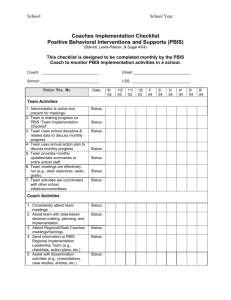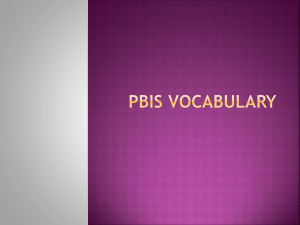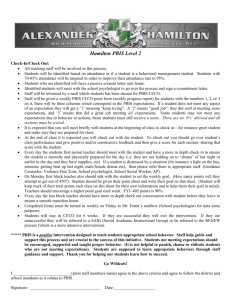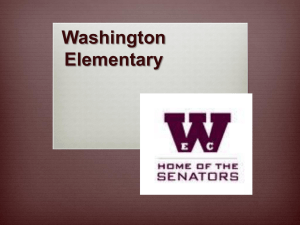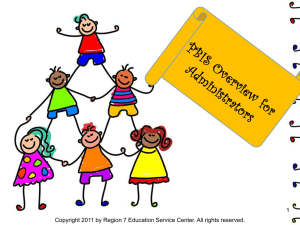What is a PBIS Coach
advertisement
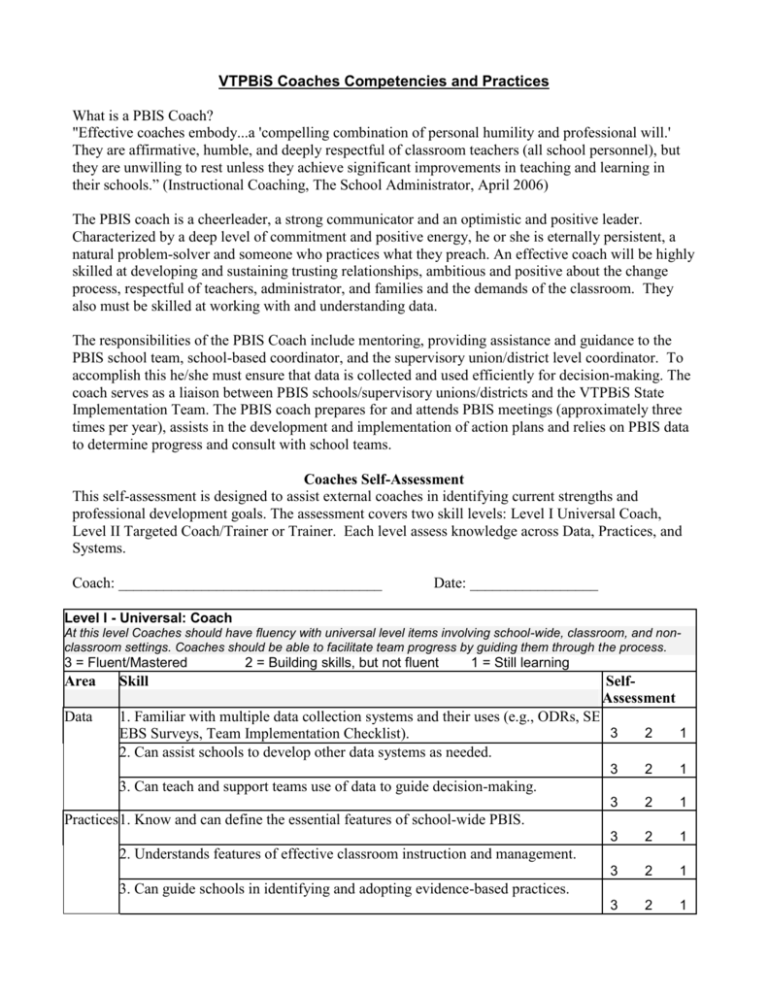
VTPBiS Coaches Competencies and Practices What is a PBIS Coach? "Effective coaches embody...a 'compelling combination of personal humility and professional will.' They are affirmative, humble, and deeply respectful of classroom teachers (all school personnel), but they are unwilling to rest unless they achieve significant improvements in teaching and learning in their schools.” (Instructional Coaching, The School Administrator, April 2006) The PBIS coach is a cheerleader, a strong communicator and an optimistic and positive leader. Characterized by a deep level of commitment and positive energy, he or she is eternally persistent, a natural problem-solver and someone who practices what they preach. An effective coach will be highly skilled at developing and sustaining trusting relationships, ambitious and positive about the change process, respectful of teachers, administrator, and families and the demands of the classroom. They also must be skilled at working with and understanding data. The responsibilities of the PBIS Coach include mentoring, providing assistance and guidance to the PBIS school team, school-based coordinator, and the supervisory union/district level coordinator. To accomplish this he/she must ensure that data is collected and used efficiently for decision-making. The coach serves as a liaison between PBIS schools/supervisory unions/districts and the VTPBiS State Implementation Team. The PBIS coach prepares for and attends PBIS meetings (approximately three times per year), assists in the development and implementation of action plans and relies on PBIS data to determine progress and consult with school teams. Coaches Self-Assessment This self-assessment is designed to assist external coaches in identifying current strengths and professional development goals. The assessment covers two skill levels: Level I Universal Coach, Level II Targeted Coach/Trainer or Trainer. Each level assess knowledge across Data, Practices, and Systems. Coach: ___________________________________ Date: _________________ Level I - Universal: Coach At this level Coaches should have fluency with universal level items involving school-wide, classroom, and nonclassroom settings. Coaches should be able to facilitate team progress by guiding them through the process. 3 = Fluent/Mastered Area Data 2 = Building skills, but not fluent 1 = Still learning Skill SelfAssessment 1. Familiar with multiple data collection systems and their uses (e.g., ODRs, SET, 3 2 1 EBS Surveys, Team Implementation Checklist). 2. Can assist schools to develop other data systems as needed. 3 2 1 3 2 1 3 2 1 3 2 1 3 2 1 3. Can teach and support teams use of data to guide decision-making. Practices 1. Know and can define the essential features of school-wide PBIS. 2. Understands features of effective classroom instruction and management. 3. Can guide schools in identifying and adopting evidence-based practices. 4. Cosistently monitors aspects of buy in and fidelity of implimentaion for 3 assigned schools. 5. Can provide schools with models and examples of other schools 3 implementing PBIS. 6. Understands basic principles of functional behavior assessment and behavior 3 planning Systems 1. Can facilitate effective team meetings. 2 1 2 1 2 1 3 2 1 3 2 1 3 2 1 3 2 1 2. Can provide effective consultation and technical assistance to school teams. 3. Able to effectively communicate within and across schools. 4. Can assist schools to establish systems that support staff and increase sustainability of PBIS efforts. Targeted/Intensive Level PBIS Coach include: At this level Coaches should be fluent at small group and Individual student level (targeted and intensive assessments and interventions). Competencies include: Area Data Practices Systems Skill 1. Can conduct SET’s and assist with other data collections 2. Is familiar with SWIS and other data systems used by PBIS schools 3. Can evaluate status of school using multiple data sources. 1. Can complete brief and full functional behavior assessments. 2. Can assist schools to develop targeted-group interventions that are function-based. 3. Can assist schools to develop individualized comprehensive behavior intervention plans. 4. Can develop and assist schools to implement social skills instructions for groups and individuals. 5. Understand advanced applied behavior analysis (schedules of reinforcement, extinction, generalization, maintenance). 6. Familiar with academic modifications and accommodations. 1. Can assist schools to develop targeted systems and individual student teams. 2. Can assist schools to develop a data-based system to identify students requiring group or individual support. 3. Can assist schools to develop monitoring system to evaluate group and individual interventions. 4. Can assist schools in creating policies based on practices. 5. Familiar with other agencies and can facilitate collaboration between school, agencies, and families. 6. Can collaborate with Coordinators to disseminate school/district/region success (presentations, articles, case studies). 3 3 3 3 3 3 2 2 2 2 2 2 1 1 1 1 1 1 3 2 1 3 2 1 3 2 1 3 2 1 3 2 1 3 3 2 2 1 1 3 3 2 2 1 1 3 2 1 Summary and Professional Development Goals Record number of 3’s, 2’s, 1’s. Identify Primary Goals for this Year: Fluent Building Skills Still Learning Steps and Timelines 1. ______________________________ ___________ 2. ______________________________ ___________ 3. ______________________________ ___________ Identify priority 1. ____________________________________________ topics for professional 2. ____________________________________________ development needed this 3. ____________________________________________ year Adapted from Lewis-Palmer, Barrett, & Lewis 4/04
